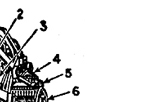MANDELSTAM IN LIMBO
for Seamus Heaney
1.
In the middle of my life I'd lost
my way.
I was wandering in a forest on a mountain
And stumbled on the gate I had expected.
It carried an inscription I couldn't read, but
I guessed its meaning from the calling of the birds:
Their cries fell through the gate and ceased to sound.
I knew I couldn't pass without a guide,
Someone to stir my compromised resolve
And wash me of the culture of the dead.
Leaning against the lintel, my eyes half closed,
I paused while I considered whom to summon...
2.
Something about the jutting ears,
the halo of hair,
The lifted, authoritative, patriarchal chin
Was unmistakable, despite the dishevelment of death.
With a visible effort he pulled himself together;
He had just given himself to sleep and now
Even the muted colors of the forest shade
Stung like the grit of seawater in his eyes.
Blinking and rubbing, stretching his thin neck,
He looked with anguish on the world he'd been denied—
And then his old, habitual response took over.
Stiff with disuse, but unextinguished by the grave,
His lips and teeth began to clench and chew,
To cut and mold his aspirated breath
Into wordlike bits and intelligible chunks,
But nothing passed his lips or stirred the air...
3.
Virgil?--No, this body had been
Mandelstam;
Stalin's functionaries had passed him over
To their colleagues in the other world.
He was new to death. Death's dismantling
Had only just begun. He had thought that
Death would stop it, but the grizzly process
Of grinding off the soul's eccentric spurs
And leaving something smooth and indestructible
Went on with even greater speed unhindered
By the fractious nature of the living man.
He was numbed by death, unable to prevent
The methodic purging of his flesh.
He looked at me with agony and incomprehension,
As if I'd put some polite but thoughtless inquiry
To a prisoner in the act of being flayed...
4.
And had I spoken? I wasn't sure,
But the air around was heavy with a question,
A buoyant but persistent inquiry
That only could have come from me.
It was my single offering in his honor,
The single desire remaining I could give
To mingle with the passions he was guarding.
It was unnecessary; I read the answer in his face:
He had loved the smell of thyme between his palms
But was sickened by the savor of oblivion;
He was being made again for Paradise, but
Found that he despised the taste of asphodel.
5.
Moved by some vestigial sense of
pride, or
A strong Semitic consciousness of his place,
His duty in the dissemination of the word,
Or the harsh compassion of experience
Acquired by a small, self-doubtful man,
He finally came forward, formidable,
Pulling what was left on him along.
He had lost, complete, his gift for language,
But in his every remaining gesture I could read
The force of his impatient condemnation:
"Why have you come to me so soon?" and
"Why are you so full of resignation?..."
6.
Stung by his gestures of impatience
I startled, stepped back, slightly wakened.
I had inside an image of a boat, a coin, a valley,
A river, a muscled, unsentimental boatman
Prodding without ceremony his lifeless cargo.
The image deepened: I saw a crowd of souls beside
The perfect leaden shimmer of the water
All jostling for position on the bank,
Not frightened, only anxious that the man
Accept their coins, accept from them
The heavy, unwanted burden of their bodies—
A vision which I clung to as it faded...
7.
His anger grew and focused itself
at me;
I heard it like a tiny hiss of breath,
And overcome by remorse and indecision
I took a guilty census of myself.
Besides the standard symbols of the pilgrim,
The wooden staff and scallop shell for water,
Were arms, legs, eyes, anus, testicles and brain,
All complete, in order, but abandoned.
And as I looked at him in hesitation,
He seemed to be on fire without a flame,
He seemed to whither, curl, fall within himself;
I recoiled in horror, and as I turned,
A gust of heat came like a benediction...
MANDELSTAM IN LIMBO
Andrew Davis
ON MANDELSTAM IN LIMBO
Osip Mandelstam was, with Anna Akhmatova, the great poet of the "Silver Age" of Russian poetry at the beginning of this century. After years of forced vagabondage and internal exile in Voronezh, he was rearrested in 1938 and died in a transit camp on the way to the Gulag. While his reputation beyond Russian speakers has been circumscribed by the notorious difficulty of translating his verse, it has been augmented by the biography written by his wife Nadezhda, Hope Against Hope, a book of great intelligence and moral sensitivity.
My poem, Mandelstam in Limbo, is, obviously, a recasting of the beginning of Dante's Inferno, with myself, or the "I" in the poem, as Dante and Mandelstam as Virgil. Virgil was Dante's supreme intercessor in matters of morality and inspiration; Mandelstam is mine.
Mandelstam's Room was originally conceived as an entire room, furniture as well as architectural appointments, devoted to, quoting from, related to the poem Mandelstam in Limbo. An "actualization," let's say, a "realization" of the poem. With time, the homogeneity of the original idea has faded, and what I had first seen as a room with a fairly uniform style and purpose has become, in my mind, a space of imprecise utility and jumbled forms--"in my mind" because, to date, unrealized. This table and chairs is the first piece, and the centerpiece, of that room.
